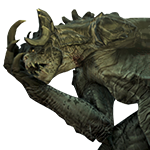As I was perusing jap rpg blogs and websites looking for old jap games, I didn't find any great forgotten gem but I did find two articles of interest:
First, did you know that (some) codexian interviews are so famous that they even get their jap translations? Yep, japs do love Phantasie.
That's one thing, but the really surprising one was this: as recently as last month, 4gamer.net (the japanese Gamespot basically) managed to get an interview with one of Wizardry's fathers, Robert Woodhead, in which they talk about old animes, old games, kickstarter and his current job as importer of anime. I just knew I had to translate it and post it here, if only for aweigh's sake.
Without further ado:
First, did you know that (some) codexian interviews are so famous that they even get their jap translations? Yep, japs do love Phantasie.
That's one thing, but the really surprising one was this: as recently as last month, 4gamer.net (the japanese Gamespot basically) managed to get an interview with one of Wizardry's fathers, Robert Woodhead, in which they talk about old animes, old games, kickstarter and his current job as importer of anime. I just knew I had to translate it and post it here, if only for aweigh's sake.
Without further ado:
Let's have a talk with Robert Woodhead, one of the founding fathers of the cultural breakthrough that was Wizardry, about his work and how his love of 80's anime influenced it.
During the spring of 1981, in Massachusetts Boston's computer show Applefest, "Wizardry: Dungeons of Despair", a game released on Apple II, stole the show. During this same year's autumn, the exhibitors, Sirotech Software (afterwards renamed Sir-Tech Software), released "Wizardry #1 - Proving Grounds of the Mad Overlord". Together with the Ultima series, those Apple II releases started defining the nature of CRPGs.
One developer of that title, Trebor (Robert inverted), also known as Robert Woodhead, had many interviews starting from 1980 and over the years as the author of that legendary game and answered many questions. However, this series still hold many mysteries that have not been elucidated entirely.
Upon learning that he would be coming to the Anime Japan 2016 in Tokyo, 4gamer got in touch with him and arranged an interview. Not only did we talk about old games, we also talked about his current job as well as his love for the japanese anime world, amongst other things.
Robert Woodhead has started his own company, AnimEigo, which is specialized in importing to North America anime and Japanese historical plays. His company brought "Urusei yatsura", "Orange road" and "Ah my Goddess" overseas.
4Gamer: Thank you very much for taking some time to meet us. It's a great honor to meet you in person.
Woodhead: You're welcome! (laughs)
4Gamer: You are one of the founding fathers of the Wizardry series, and now you work for the anime industry. Can you tell us about that and your coming to this year's Anime Japan?
Woodhead: Sure. 25 years ago, I created the AnimEigo company and started importing anime and historical plays to north America. Since then, we've brought anime such as Riding Bean, Bubblegum Crisis and Gainax's Otaku no Video to the English world in VHS, LD and DVD format, although we're trying something new right now.
4Gamer: Meaning?
Woodhead: We are trying to raise some funds for Blu-ray releases through crowd funding using Kickstarter. Working with the fans and letting them vote on the packaging and add their name in the product. They also gave us some great ideas. Our three latest titles went over our initial goals.
One developer of that title, Trebor (Robert inverted), also known as Robert Woodhead, had many interviews starting from 1980 and over the years as the author of that legendary game and answered many questions. However, this series still hold many mysteries that have not been elucidated entirely.
Upon learning that he would be coming to the Anime Japan 2016 in Tokyo, 4gamer got in touch with him and arranged an interview. Not only did we talk about old games, we also talked about his current job as well as his love for the japanese anime world, amongst other things.
Robert Woodhead has started his own company, AnimEigo, which is specialized in importing to North America anime and Japanese historical plays. His company brought "Urusei yatsura", "Orange road" and "Ah my Goddess" overseas.
4Gamer: Thank you very much for taking some time to meet us. It's a great honor to meet you in person.
Woodhead: You're welcome! (laughs)
4Gamer: You are one of the founding fathers of the Wizardry series, and now you work for the anime industry. Can you tell us about that and your coming to this year's Anime Japan?
Woodhead: Sure. 25 years ago, I created the AnimEigo company and started importing anime and historical plays to north America. Since then, we've brought anime such as Riding Bean, Bubblegum Crisis and Gainax's Otaku no Video to the English world in VHS, LD and DVD format, although we're trying something new right now.
4Gamer: Meaning?
Woodhead: We are trying to raise some funds for Blu-ray releases through crowd funding using Kickstarter. Working with the fans and letting them vote on the packaging and add their name in the product. They also gave us some great ideas. Our three latest titles went over our initial goals.
4Gamer: Hum, I see.
Woodhead: Now, we're trying to find a new project to work upon, and that's why we came to the Anime Japan, as buyers. We're looking for a good classic from the 80's or 90's.
4Gamer: We have checked the AnimEigo official site and its history page. The company was started one year after the release of Wizardry 4 - The Return of Werdna (1988). Together with Roe Adams, Wizardry's scenarist, you started this venture by releasing VHS with subtitles.
Woodhead: Exactly. To be precise, AnimEigo started some time before. Our first release was in 1988 though.
4Gamer: You're a long time fan of Japanese anime and historical plays, right?
Woodhead: I love all kind of movies, whether they are anime, historical plays or others. Hayao Miyazaki's works, Urusei Yatsura, Akira... But also Lensman. I watched all kind of movies, not limiting myself to a genre in particular.
4Gamer: Ooh, Lensman! The movie was quite different from the original novel though, how did you like it?
Woodhead: It was very interesting. I wish the anime had been closer to the original work though. E.E.Smith's Galactic Patrol (the first book in the Lensman series) was the first SF novel I ever read. I think I was 8 or 9 years old, it was a gift from my aunt. I remember searching through book-stores for the sequel, six months later.
4Gamer: This very much resonates with how I feel personally. At roughly the same age, I was also very passionate about the Japanese translation of Lensman (laugh). I know it isn't an easy question, but which Japanese anime would you say is the one you like the most?
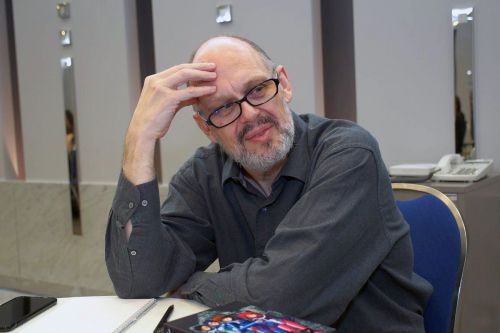
4Gamer: Then, which episode of Urusei Yatsura is your favorite?
Woodhead: Let's see...Maybe the one in the bath-house. When the boys try to peek into the woman's bath and end up breaking the wall, but the girls actually all wore swimsuits, that kind of stupid episode※. And, as the boys are naked, stage staff in black come running to hide their nether parts (laugh). I've seen that joke since, like with the "Teenage mutant ninja censor", but I do think they've been the first to do it.
※Urusei Yatsura's n°124
4Gamer: Indeed, quite the masterpiece (laugh). By the way, while we're talking about Urusei Yatsura, did you know that one of the directors, Mamoru Oshii, is known far and wide as a hardcore fan of the Wizardry series?
Woodhead: Actually, I just learned about it today. I heard this just before this interview.
4Gamer: Really? That's quite the coincidence. In "Ghost in the shell 2", "Trebor" and "Wizard" call signs are used, and in "Avalon" there is a character named Murphy.
Woodhead: I think I would have remembered that. Maybe it was lost in the English translation. Especially the Murphy part. I have to tell Andy※ about it!
※One of Wizardry's developers, Andrew Greenberg. The joke about Murphy's ghost comes from a friend of Andy, Paul Murphy.
4Gamer: Mamoru Oshii's feelings finally got through, albeit 20 years late! (laugh) By the way, the anime we talked about are all from the 80's, what do you think about more recent ones?
Woodhead: Actually, I've been so busy that I've never had the time to watch the more recent works. It seems a lot of the new works are aimed at a younger audience. I did watch the "Knights of Sidonia" series, though. To be fair, I like SF more than fantasy.
4Gamer: I see. But you know, there have been many releases that may appeal to your SF taste. I know you are a big fan of the Star Wars series, have you seen the latest movie?
Woodhead: Of course. I was there at the first screening of the movie. It felt a bit too classic, but still a lot of fun. It might be the second or third best in the series.
4Gamer: Then I have to ask which one is your number one. (laugh)
Woodhead: My favorite is "The empire strikes back". My second best is "A new hope" but I like it mostly because it's the original one. The latest movie is roughly at the same level as this one, which is great praise from me.
Robert Woodhead's chronological record
Date Event
1959/01/22 Born in England's Kent, in Royal Tunbridge Wells.
1966 Immigrated to Canada
1973 Migrated to New York Ogdensburg.
1975 His father passed away. His mother Janice took her husband's job. (Fred Sirotek was a business partner of his mother)
1970's Entered Cornell University. Had some part-time jobs at some computer companies.
1974 Release of the original "Dungeons & Dragons"
1975 Release of "Monty Python and the holy grail"
1975 Moria available on PLATO
1977 Release of "Star Wars"
Release of the Apple II
Bought a TRS-80 by the Tandy Corporation
Oubliette available on PLATO
1979 Founded the Sirotech Software company with Norman Sirotek
1980 1 year break from Cornell University. Started working on "Paladin" and met Andrew Greenberg as he was working on the BASIC version of Wizardry.
Released the database software "Info-Tree" and "Galactic Attack". The latter was a success.
1981 Sirotech Software's "Wizardry: Dungeons of Despair" became famous at the Boston's Applefest.
1981 Sirotech Software became Sir-Tech Software.
1981 "Wizardry #1 - Proving Grounds of the Mad Overlord" released.
1982 "Wizardry #2 - The Knight of Diamonds" released. Got in Softalk's TOP30 in July.
1982 "Star Maze" released.
1983 "Wizardry #3 - Legacy of Llylgamyn" released.
1987 "Wizardry #4 - The Return of Werdna" released (released in 1988 in Japan).
1988 AnimEigo founded in New York, Ithaca (now in North Carolina).
"Wizardry #5 - Heart of the Maelstrom" released (released in 1990 in Japan).
4Gamer: Now, please tell us more about the Wizardry series. The games are based on a BASIC prototype developed by Andrew Greenberg at the Cornell University that you translated into Pascal.
Woodhead: Exact.
4Gamer: At the time, you were part of a Dungeons&Dragons group named WARG (Wizardry Advanced Research Group), and it's with this group that you created the scenario for what was to be Wizardry?
Woodhead: No, I played D&D a lot then, but not with them. WARG was Andy's group. Incidentally, I used to have the original 1974 version, but sadly I had to part with it some time ago.
4Gamer: By the way, could the Wizardry series' name be related to that group's name?
Woodhead: I'm not really sure. It's Andy that actually came up with the name...but now that I think about it, it's quite possible that's where it came from.
4Gamer: I see. Wizardry has been influenced by D&D, but also by the computer you were working on at the time, PLATO and its subculture. You've said as much in a previous interview (ROCAS "Wizardry Collection" compilation).
※The learning computer used at the Illinois university at the time. The 1972's PLATO IV was used around the world by students in an effort to build a network and many online games were also created at the time.
Woodhead: Indeed.
4Gamer: What kind of games really had any sort of influence?
Woodhead: Games on the PLATO system that had any kind of influence? At least Moria, Oubliette, as well as Avatar.
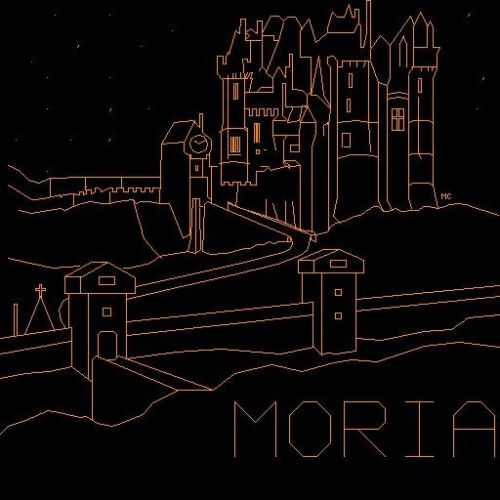
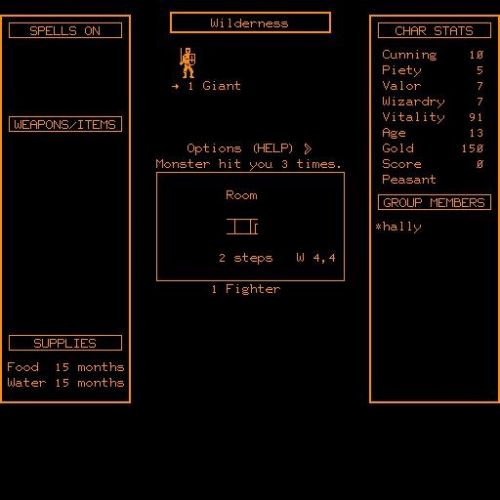
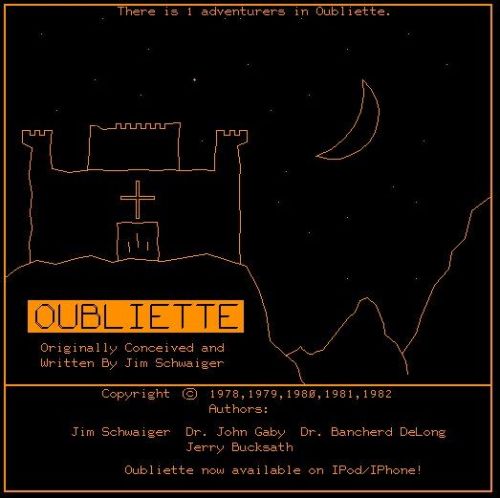
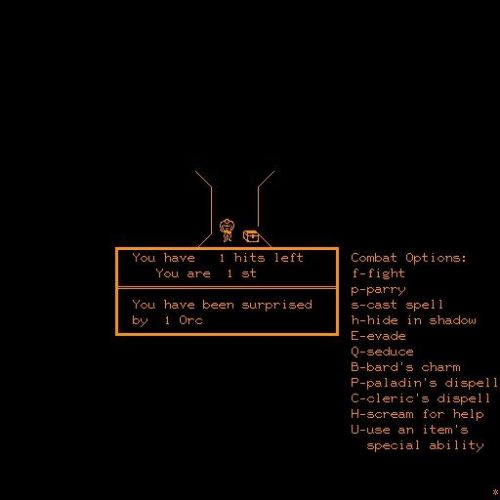

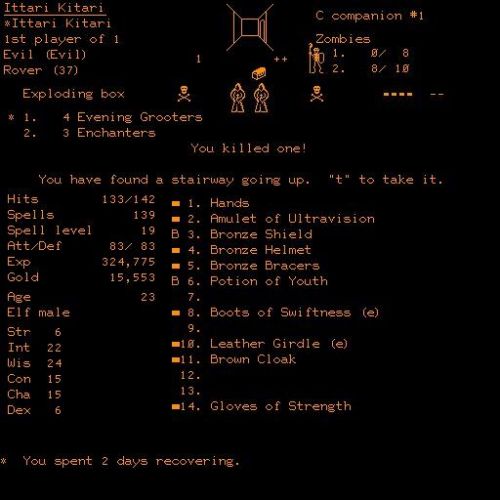
4Gamer: Oubliette has spells with the same names as in Wizardry but with different effects, was that on purpose?
Woodhead: I have absolutely no idea about that. It's probably a coincidence they have the same name.
4Gamer: What about the Murasama Blade and the Shuriken? Ninjas and Samurais appear as jobs in Oubliette too, but only Wizardry had actual japanese weaponry.
※The original Apple II version of Wizardry 1 had Murasama instead of Muramasa.
Woodhead: Ah, no, this is the influence of James Clavell's Shogun (1975). The Murasama Blade and Shuriken came from that novel too.
4Gamer: And what about Wizardry #4 - The Return of Werdna's ARABIC DIARY(TALES OF MADNESS)? It became Necronomicon in the console game version, was it what it was supposed to be?
Woodhead: Yes, it was supposed to be the Necronomicon. 95% of Wizardry's n°4's scenario was written by Roe Adams, the ARABIC DIARY was his idea too. I read H.P.Lovecraft's works too, so I knew it was the Necronomicon.
4Gamer: I know a big part of the influence is D&D, but there is also some influence from J.R.R.Tolkien. In 1977 the NBC TV released the Hobbit's adventure anime. It was made by future studio Ghibli staff and was top of the line.
Woodhead: I didn't know about that anime. I read Tolkien's novels, obviously, but the principal influence is clearly D&D.
4Gamer: I thought Wizardry's unique spell lingo was similar to Tolkien's fictional languages though.
Woodhead: Ah, that's impossible (laugh). It's actually fake welsh, we chose that because it sounded good. Why welsh especially?...I totally forgot (laugh).
4Gamer: There is one word that I'd like to know more about: the Maelfic monster's name, where does it come from? In the Famicon version it uses the Pazuzu image, but...
Woodhead: It comes from the English word "malefic", meaning "Extremely evil". Like an embodiment of evil. It came from the witch's name in the Sleeping beauty fairy tale, Maleficent.
4Gamer: In the late 80's, there was a plan to make player character data from the software production house BPS's RPGs※ and SIR-TECH's Wizardry series convertible. I remember reading about it at the time in a PC magazine. What happened to that project?
※"Black onyx" and "Fire crystal", amongst others.
Woodhead: It probably happened while I was working on the Macintosh version of Wizardry, but...I vaguely remember BPS's Henk Rogers' name. I think it's just that it never actually happened.
4Gamer: I see... Ah, I'm sorry, I keep asking questions that kept me intrigued for a while.
Woodhead: No problem. You know, as most games, Wizardry is nothing but a ring in the chain that bind all games together. Games are influenced by their predecessors and cultural events, and Wizardry was no exception. And now, it is Wizardry's turn to influence the work of others. It really does feel like being part of a big chain.
4Gamer: Oh yes indeed. The "ring" that Wizardry created in Japan is quite noticeable. I don't think I would be exaggerating saying that many games, anime and novels are directly influenced by the Wizardry series.
Woodhead: It's an honor. But I do think we were lucky more than anything else. And I do think most of the thanks are due to the localization For Tune and GameStudio as well as Asuki's staffs. I especially think that the Famicon release was our best version of Wizardry. At the very least it didn't contain my badly drawn pictures! (bitter laugh)
4Gamer: When I replay the Apple II version now, I see how Wizardry was born from a melting pot of various influencing works. The character's jobs and races, the monsters, the pictures and text messages. But what did you accomplish with Wizardry that you feel was entirely original?
Woodhead: Well...the presence of a scenario, I think. Older Computer RPGs didn't have a defined goal and were not made with an end goal in mind. We added a scenario with puzzle-like components to our game. That's the thing that make it different from the other titles, I think. The n°4 of the series was the more representative of what we aimed to do.
4Gamer: You added a scenario to the fusion of a net game, Oubliette, and a tabletop game, D&D, on the Apple II, is that it?
Woodhead: Yes, we were really thinking about how to better represent them in that little box. Also, our puzzle-ridden n°4 was made using a faster machine, the PC-9801, thanks to our Japanese staff. They installed a Pascal development environment/operating system and so we were able to work with a "Fast Apple II".
4Gamer: Before we conclude, I would like to ask you more about the future, even though you're now working in the anime business. I personally would love a new game, so what about a game with a SF theme since you're a big fan of SF?
Woodhead: It would be hard to do, considering how much work the anime business requires, but I did think about a new game for a while. During my first 6 years after AnimEigo was created, I lived in Japan and had 3 goals in mind. First, to court a woman. Then, to make a new game. Finally, to create an anime company.
4Gamer: A woman?...
Woodhead: Now my wife. She was a translator at the time and I came running after her to Japan (laugh).
4Gamer: Oh, that's great. So in the end you did succeed at the first goal.
Woodhead: Yes, goals one and three were great successes. But the second goal, the game making one was a failure in the end. Had it happened, it could have become the first MMORPG in the world.
4Gamer: Really? What kind of game was it?
Woodhead: It would have looked like a middle-age European fantasy world, but as the game went on, you would have discovered that it was in fact a post-apocalyptic world. That was the idea. But the economic bubble busted when I moved to Japan and I never managed to find enough funds for it (bitter laugh).
4Gamer: That's...I really wish I could have seen it. By the way, you have been saying several times from the 80's that computer RPGs would become online games. And in the end, "Ultima Online" fulfilled this prediction.
Woodhead: I wouldn't call it a prediction, but it was inevitable that it would happen.
4Gamer: But this world setting does closely look like the Ultima series' one. It's regrettable that it was Ultima Online that ended up hugely successful as the first MMORPG.
Woodhead: Well, my game was going badly, and I was trying to court my wife. AnimEigo was starting to go as planned too, so I told myself it wasn't such a big deal (laugh).
4Gamer: Do you have plans to come back to Japan?
Woodhead: I have my work at AnimEigo. Since my children are grown up, I think I'll have some opportunities to come for some events. But depending on the current presidential election's results...I might come living in Japan like before (laughs)
4Gamer: Ah (bitter laugh). If this were to happen, I would love to talk with you again. Have you anything more to say to your japanese fans?
Woodhead: Let's see...Well, "Thank you for your support!"
4Gamer: Thank you very much for today.
So he was a pioneer of the MMO decadence, chose a woman and anime over gaming and doesn't think America will be made Great again?

For extra cringe, let's check AnimEigo's "Secret History":
And oh yes, Natsumi finally gave in and married Robert in a ceremony that involved an interactive "adventure game" wedding in which the guests got to decide how things progressed
Last edited:














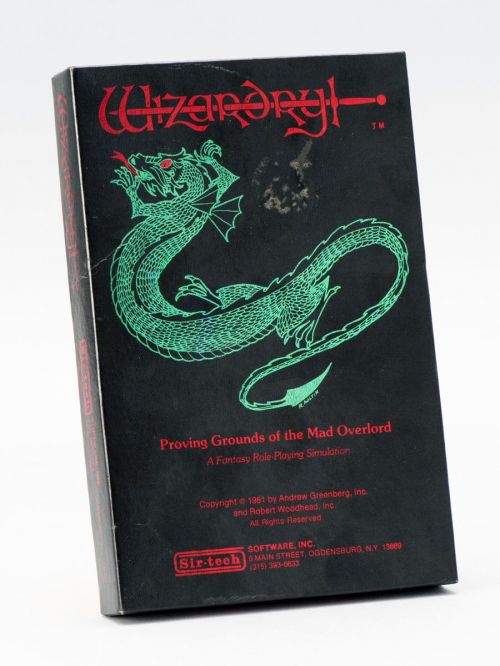

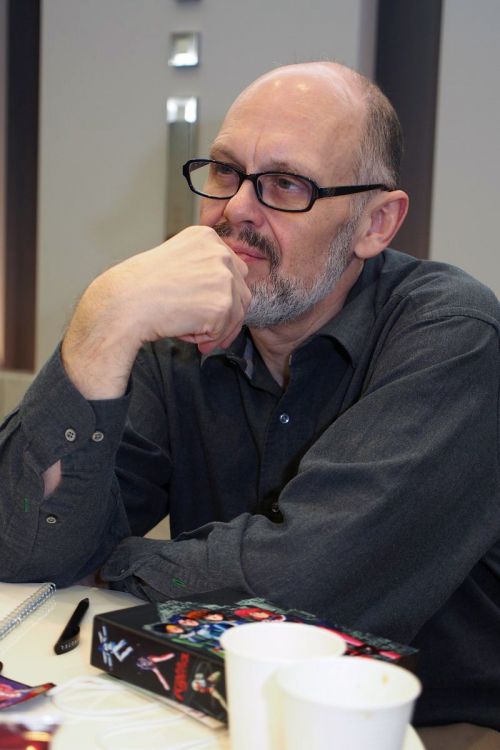
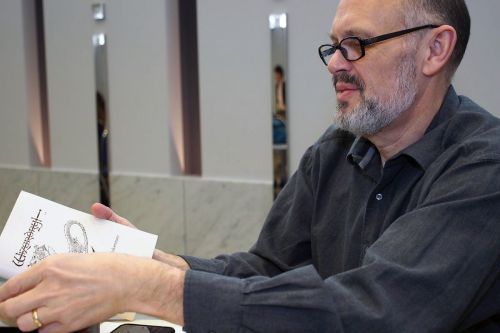







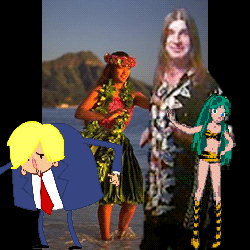








![The Year of Incline [2014] Codex 2014](/forums/smiles/campaign_tags/campaign_incline2014.png)

